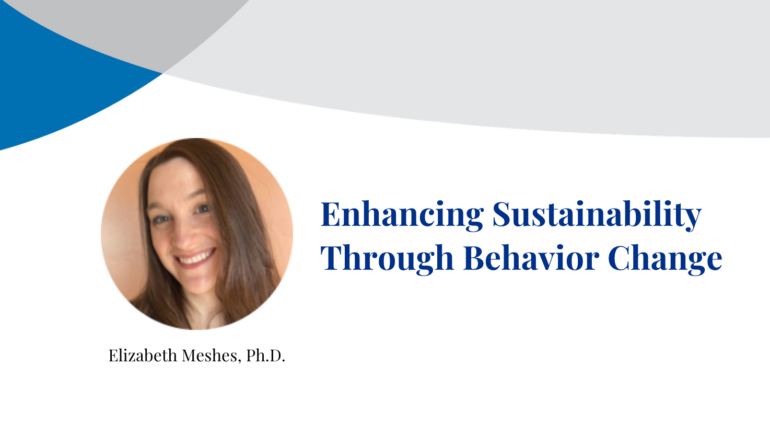Garbage: We throw it away, eager to be rid of it, but its impact endures. When diverted to landfills, organic waste, encompassing food scraps, significantly contributes to greenhouse gas (GHG) emissions. As it decomposes in landfills, it emits methane, a GHG with an impact of 28 times that of carbon. Consequently, reducing and diverting food waste from landfills can significantly impact.
Notably, nine states have already passed laws to decrease food waste, underscoring the importance of this issue. Even if you are not in these states, every person’s actions make a difference. Behavior analysis can guide techniques to promote more sustainable behavior.
What Is Behavior Analysis?
Behavior analysis is the science of human behavior. It evaluates behavior as it relates to the context of its occurrence. It looks at what occurs before (antecedents) and after the behavior (consequences). This assessment allows practitioners to create an intervention based on behavior-analytic scientific principles.
Applied behavior analysis (ABA) applies this science to influence or modify behavior, with Board Certified Behavior Analysts (BCBAs) targeting behaviors deemed socially significant to individuals and communities. Behavior analysis can be applied wherever behavior occurs, i.e., everywhere human beings are. There is no more socially significant cause than combatting climate change.
Behavioral Interventions for Organic Waste Disposal
Behavior-analytic interventions are categorized under two main areas: antecedent and consequence interventions.
Antecedent interventions are changes made before the behavior occurs that either increase or decrease the likelihood of the behavior occurring. Consequence interventions are actions taken after the behavior occurs, categorized based on whether you want to increase a behavior (reinforcement) or decrease a behavior (punishment).
Behavior analysts prioritize positive reinforcement procedures but recognize punishment procedures occur naturally in everyday life, for example, giving a disapproving glance to quiet a significant other sharing your personal information. Many behavior-analytic interventions involve aspects of both antecedent and consequence interventions.
Antecedent interventions to promote pro-environmental behavior may be successful because they allow a person to experience a consequence more naturally and with less effort in the environment.
For example, consider you have an empty recyclable soda pop can. You are more likely to throw it in a recycling bin when that bin is close to a trash bin because placing a recycling bin by a trash bin reduces the effort required (reduced response effort). Additionally, you feel good about doing the right thing (a natural consequence), increasing the likelihood that you will do it again (positive reinforcement).
Another antecedent intervention that can be helpful when unsure of the right behavior includes prompts. Prompts are stimuli that are added to the context that increase the likelihood of the behavior to occur.
To extend the prior example, if unsure where to dispose of the empty cardboard food tray, a sign, i.e., a prompt, above the trash, recycling, or compostable bins showing that soiled cardboard goes in the compostable bin will guide the right behavior. You are a sustainable superstar, modeling the right behavior for everyone around you. Modeling is another intervention that changes the behavior of others and shifts social norms, i.e., changing cultures. This shift involves both antecedents and consequences.
Consequence interventions are required to increase and maintain behavior, including monitoring, feedback, and reinforcement strategies. Monitoring involves observing and recording behaviors and the effects of the actions (consequences), facilitating targeted interventions to reduce, reuse, and recycle. Feedback derived from monitoring can guide subsequent interventions like meal planning, preparation, storage, and disposal.
Finally, tangible or social reinforcement can strengthen one’s resolve for pro-environmental behavior by highlighting cost savings, social responsibility, and environmental impact.
Conclusion
Behavior analytic techniques can promote behavior change to mitigate the environmental impacts of organic waste disposal. Whether through antecedent interventions like reducing response effort or prompting or using consequence interventions, such as feedback and reinforcement strategies, every action makes a difference. Using behavior analysis, we can collectively work toward combatting climate change and fostering a planet for future generations.

